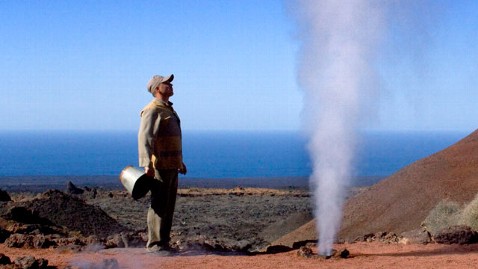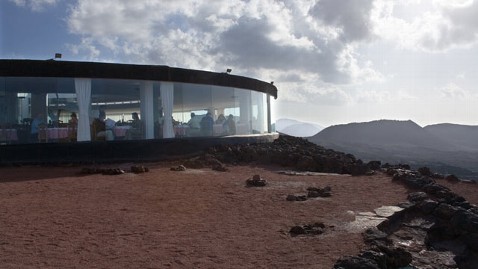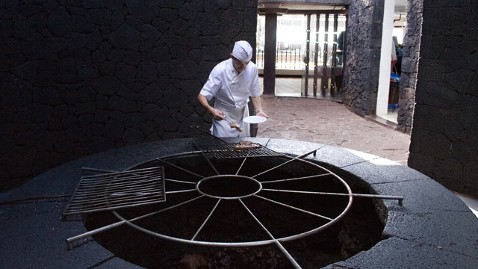Your Food is Cooking in a strange style on a Volcano at El Diablo Restaurant

The name of the restaurant is El Diablo, or the devil, which kind of fits, considering what takes place here.This restaurant in spain uses volcanic heat to cook all the food here.
Feast your eyes on this ultimate barbecue experience complete with panoramic and dramatic views. Enjoyed against the volcanic backdrop of Lanzarote’s Timanfaya National Park in the Canary Islands, the food served at El Diablo is cooked on a massive cast iron grill built over a large hole in the ground.
Feast your eyes on this ultimate barbecue experience complete with panoramic and dramatic views. Enjoyed against the volcanic backdrop of Lanzarote’s Timanfaya National Park in the Canary Islands, the food served at El Diablo is cooked on a massive cast iron grill built over a large hole in the ground.

Designed by the local architect Cesar Manrique and built in the 1970s, the meat, poultry and fish are grilled using the volcano’s geothermal heat. El Diablo’s manager, Julio Padron, told ABC News that the heat emanates from the volcano ”24 hours a day, 365 days a year, reaching between 450 to 500 degrees Celsius.” That is why volcanologists call it a geothermal anomaly, because of the unusual temperatures on the surface that come from underground.
The restaurant consulted scientists and volcanologists to check the food and the way it is being grilled, and they gave it the thumbs up, deeming it safe, saying there were ”no dangers associated with this technique of cooking at all,” Padron said.

Thankfully, the volcano does not spew lava because it’s dormant but the bursts of heat or hot vapor are enough to cook delectable dishes that have many tourists flocking to the restaurant in droves. Open from midday until 3:30 p.m., the restaurant is ”fully booked every day,” Padron told ABC News.
The area is famous for its Martian-like landscape. The ”Montañas del Fuego,” or Fire Mountains, were created in the early 18th century when more than 100 volcanoes sprung up on the island. Because the rainfall is low there is hardly any erosion, so most of the landscape looks the way it did in 1824, the date of the last volcanic eruption.






0 comments:
Post a Comment